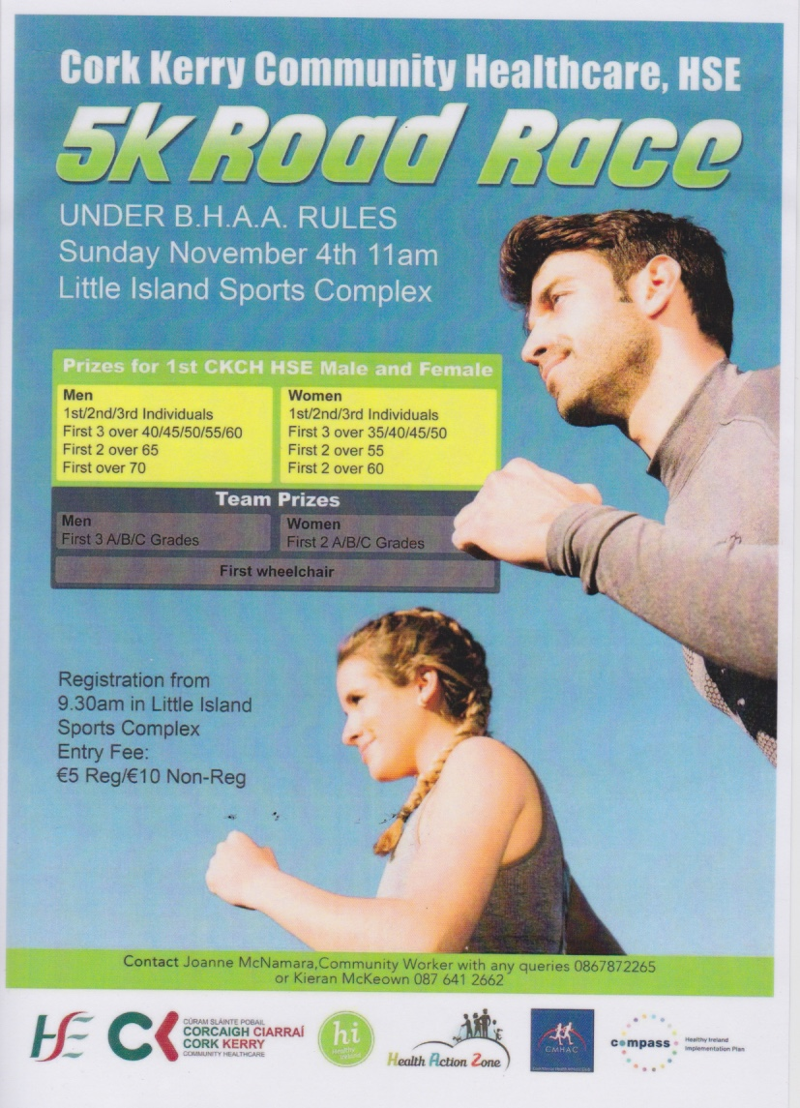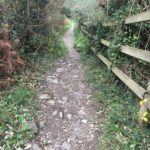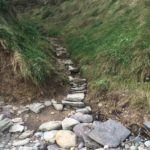Well-being is important!
Road Race in Little Island
Sonnenschutz
In meinem letzten Post habe ich euch mit an die Strände von Ballycotton genommen. Das schöne Wetter hat mich rausgezogen. Und weil ich mir einen kleinen Sonnenbrand geholt habe, ist es tatsächlich Zeit über geeigneten Sonnenschutz zu sprechen.
WeiterlesenThe kick for the head (by Denise Jeitziner)
The kick for the head (by Denise Jeitziner)
Nothing relaxes people as reliably as nature
Research in relation to nature in hyper civilization (natursoziologie.de 6/2014 Jeitziner)
It’s said, nature is good for you. It pulls us outside when we feel restless.
To the river, to the lake, into the forest, to the mountains. Intuitively. Afterwards, we usually feel better, more relaxed. Scientists have been studying the question of how nature affects our psyche for decades.
US – Researchers are amongst the pioneers in this field of study. Originally they wanted to find out, how roads and accommodations in American national parks need to be created to make the visitors feel comfortable and return as often as possible. Later on, they extended the field. The result was always the same: nature is good for you.
This effect can be read from the fact that blood pressure and heart rate decrease, as well as the cortisol content in the blood.
And that our heart rhythm reacts more flexibly to stress.
All of them are indicators of relaxation. The stay in nature improves our concentration and mood – a few minutes can be enough. Nature experiences make us more social, more open-minded and strengthen the frustration tolerance.
………..
There is no shortage of evidence that nature has a positive effect on us. However, the experts have difficulties to explain, what is it exactly that relaxes us. The findings of psychologists Rachel and Stephen Kaplan (University of Michigan), who has been researching environmental psychology for more than 30 years, are well supported.
They found 4 categories an environment must meet to be relaxing: „distance from daily life“, „Orientation towards the needs“, „Fascination“ and „Expanse“.
„distance from daily life“: We can only really recover, once we feel separated from our routine, our duties – and not only just locally, but especially mental. Of course, this feeling can occur, too, in cinema, in a spa or stroll through the nice historical center of the city. But nowhere as easy as in nature. The place of escape does not necessarily have to be as far away or as exotic as possible; Neither the sea nor the rainforest is necessary. For some, it is the park in front of their house, for others any riverbank, a lake or any forest.
………..
„Orientation towards the needs“ is the 2nd characteristic for a relaxing surrounding. According to Rachel and Stephen Kaplan, we recover best, once we’ll find in that surrounding, what we are searching for that special moment: peace, a beautiful view, hiking or swimming.
Most of the environmental psychologists address the effect of different types of landscapes. „Of course loads of other, less researched factors, play an important role in landscaping perception“, Nicole Bauer says from WSL. Aside from noises and flavors, most possibly colors influence our well-being, too, so the different wavelengths of light. The blue tones of the sky mirrored in the water stand for relaxation and peace. It’s been shown to lower blood pressure and heart rate. Just like the color green, which has a calming and relaxing effect.
However, the 3rd criterion of landscapes is crucial. The Kaplans describes it as „Fascination“. Once we are fascinated by an environment, we recover more easily. Nature achieves here something paradoxical: It enchants us with gentle aesthetics – with a sunset, with cloud figures in the sky or a field of flowers – and yet it isn’t exhausting.
In the Attention Restoration Theory environmental psychologists describe a phenomenon, everybody is familiar with:
During the exhausting daily life, a short stay in nature is ideally suitable to be able to concentrate again. Nature opens room for reflexion. Different from being in a museum, which exhausts us with every new artwork a bit more. It doesn’t matter how fascinated an exhibition is, from a certain point we can’t concentrate anymore.
Rachel and Stephen Kaplan make a difference between a kind of an arbitrary, purposeful attention of everyday life from an involuntary, spontaneous attention, that nature triggers in ourselves and relaxes. Only: The environment must not be too spectacular. It should inspire us, but not to enchant too much, like e.g. an exceptionally attractive person. Because then our thoughts are no longer free.
In their Attention Restoration Theory, the Kaplans distinguish from 4 phases of relaxation.
Phase 1: Clear your mind.
Phase 2: Restore attention ability.
Phase 3: allow unwanted questions and thoughts, which come up, as soon as inner and outer noise is reduced.
Phase 4: reflecting on yourself and your life, evaluate possibilities, setting goals.
A relevant key factor plays here if we feel a landscape as beautiful. It’s said, beauty lies in the eye of the beholder. The more surprising that most people, whether in Asia, Europe or Africa, prefer savanna-like landscapes with gentle expenses and sweeping trees. Most popular are landscapes that are manageable and easy to explore, with lots of green and a high water content. Evolutionary biologists found an explanation for it: Because water is essential, we feel most comfortable in landscapes with lakes, rivers or streams.
………..
The whole article is to find here: http://www.wanderforschung.de/files/jeitziner-natpsych_1410201315.pdf. However, it is in German only.
Begleitetes Wandern rund um Cork
Ein gutes Neues Jahr wünsche ich euch allen! Ich hoffe, dass all eure Wünsche für 2018 wahr werden. Das Gute daran ist, je nachdem was eure Wünsche sind, ist es möglich, sie zu beeinflussen. Das beste Beispiel dafür ist die Qualität unseres Lebens.
Wie ihr in „Über mich“, lesen könnt, bin ich in einer Familie groß geworden, die oft unterwegs war zum Spazierengehen und wandern. Kurze Spaziergänge in der näheren Umgebung oder ausgedehntere Wanderungen in den Alpen. Das ganze Jahr über. Durch die Feld, Wald und Wiesen.
Gutes Schuhwerk ist unerläßlich
Lasst uns über Schuhe reden!
Warum? Auf solchen Wegen ist es absolut unerläßlich geeignete Schuhe zu tragen:
Wanderschuhe sind die beste Lösung. Sie sollten Halbschuhen oder Sneakers auf alle Fälle vorgezogen werden, weil sie ein gutes Profil haben und den Knöchel schützen. Beides ist notwendig um unfallfrei zu wandern.
Dazu muss man keine Unsummen ausgeben (Ich für meinen Teil hab meine Schuhe bei Lidl gekauft, weil sie gerade im Angebot waren und sie sind super, auch in den Alpen). Ein paar Tipps solltet ihr aber schon beherzigen, wenn ihr zum Schuhe kaufen geht:
- Probiert die Schuhe, bevor ihr sie kauft.
- Denkt dran, dass ihr genug Platz zwischen dem großen Zeh und der Schuhspitze habt. (Ich geh immer von einer Daumenbreite aus).
- Geh ein paar Schritte und schau, ob du dich damit wohl fühlst.
- Schau auf alle Fälle, ob sie wasserdicht sind.
Suffering from a skin disorder?
I’m not a doctor! But I’ve been suffering since my early childhood from Atopic eczema.
Everyone who’s suffering from a skin disorder agrees that this can be sometimes a nightmare. It doesn’t matter how it is called. If you are suffering from Psoriasis or Contact Dermatitis or similar skin disorders, at some stage it affects your life tremendously.
Skin disorders – my personal experience
For most of these skin disorders, the following applies:
Find out what you tolerate! Sounds easy, but it’s definitely not. This can include different food, fabrics, cremes etc. Some work out for years and from one day to the next you won’t tolerate it anymore. Please consult your doctor as he is the best address to get help.
Daily routine
However, what is absolutely necessary is a daily basic care for your skin. And believe me, I tried that much different creams and the result was, at the very end I tolerate the natural creams and oils the best.
The best experiences I made with
- coconut oil
- vaseline
- dead sea salt
and - Moroccan argan oil.
Always depending on the season. When the days getting warmer I can work absolutely fine with coconut oil only and a bath with dead sea salt every 2nd day. I avoid taking a shower as it mostly irritates the skin more than necessary.
In winter times I need definitely richer cremes like vaseline or a combination of coconut oil and Aveeno or pure argan oil.
In case of emergency
There are times where I can’t sleep because this skin disorder tends to be very itchy. And also here the most basic tip for every kind of itchy skin disorders helped perfectly fine:
Take an old sock and fill with oat flakes. Let the warm water run through the sock into your bath tube and enjoy the feeling that this bath reduces the itchiness within 15 min.
When I’m on travel, walking, hiking etc. Multilind is for almost 25 years my best companion. Try it out. It’s worth every penny.
Feeling well is important
When we want to take action in our life, unfortunately, we struggle sometimes. We don’t feel that well as we expect to be.
Let’s see what we can do to get a relief and enjoy our daily life again.
Sicherheit und andere wichtige Gedanken
Wenn wir draußen sind, wir vergessen manchmal wichtige Dinge in unserem Leben. Wir sind darauf bedacht auf der sicheren Seite zu sein. Leider machen wir uns oft nur Gedanken über Geld. Geld und wieder Geld.
Mit Geld können wir unsere Pflichten auf andere übertragen. Wenn wir etwas zum Spaß machen wollen oder für unser Wohlbefinden z.B. beim Besuch eines Kinos oder Fitnesscenters, wir erwarten dass alles geregelt ist, denn wir zahlen ein Menge Geld dafür.




